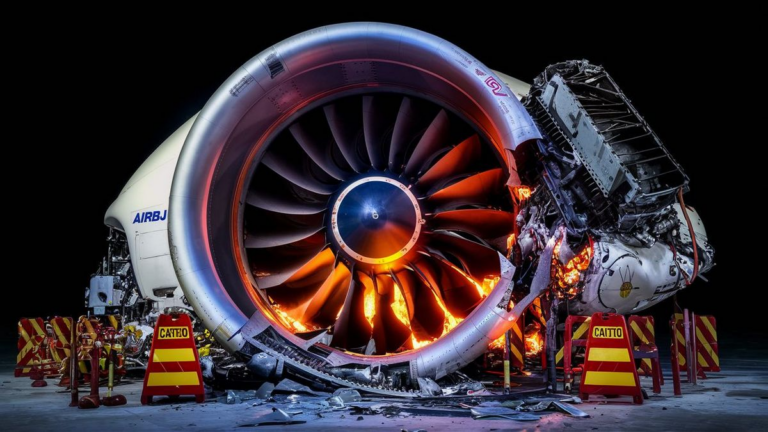In recent years, incidents of Airbus engine failures have garnered significant attention and concern within the aviation industry and among the general public. Engine failures pose serious safety risks to aircraft and passengers, prompting thorough investigations, safety measures, and advancements in technology to mitigate such occurrences.
Understanding Airbus Engine Failures
An Airbus engine failure refers to the malfunction or complete cessation of operation of one or more engines installed on an Airbus aircraft. These failures can manifest in various forms, including but not limited to loss of thrust, mechanical breakdown, or combustion-related issues.
Causes of Airbus Engine Failures
Engine failures can stem from a multitude of factors, ranging from manufacturing defects to operational errors. Common causes include:
- Manufacturing defects
- Foreign object damage
- Improper maintenance
- Operational stresses
- Environmental factors
Impact of Airbus Engine Failures
The consequences of an Airbus engine failure can be severe, leading to:
- Emergency landings
- Flight cancellations
- Financial losses for airlines
- Passenger injuries or fatalities
Preventive Measures
To minimize the risk of Airbus engine failures, rigorous safety protocols and preventive measures are implemented, including:
- Regular maintenance checks
- Enhanced training for flight crew
- Improved engine design and materials
- Advanced monitoring systems
Collaborative Efforts
The aviation industry collaborates closely to address Airbus engine failures through:
- Information sharing
- Joint research initiatives
- Regulatory compliance
Technological Innovations
Advancements in technology play a pivotal role in preventing and mitigating Airbus engine failures. Key innovations include:
- Engine health monitoring systems
- Advanced materials for engine components
- Enhanced predictive maintenance algorithms
Future Outlook
As technology continues to evolve, the aviation industry remains committed to enhancing safety measures and reducing the incidence of Airbus engine failures. Collaborative efforts, stringent regulations, and ongoing research will pave the way for a safer and more resilient air travel experience.
Frequently Asked Questions
Here are some frequently asked questions about Airbus engine failures:
| Question | Answer |
|---|---|
| 1. What should passengers do in the event of an Airbus engine failure? | Passengers should remain calm and follow the instructions provided by the flight crew. They should be prepared for potential emergency procedures, such as brace positions, and cooperate with the crew throughout the situation. |
| 2. How often do Airbus engine failures occur? | The frequency of Airbus engine failures varies, but they are relatively rare occurrences. The aviation industry implements rigorous maintenance and safety protocols to minimize the risk of such incidents. |
| 3. Are Airbus engine failures more common than those on other aircraft? | It’s difficult to make a direct comparison as engine failures can occur on any aircraft type. However, Airbus and other manufacturers continuously work to improve engine reliability and safety across their fleets. |
| 4. What role do regulatory authorities play in preventing Airbus engine failures? | Regulatory authorities, such as the Federal Aviation Administration (FAA) and the European Union Aviation Safety Agency (EASA), establish and enforce safety standards and regulations for aircraft and engine manufacturers. They conduct inspections, audits, and certifications to ensure compliance with these standards, thus contributing to the prevention of engine failures. |
Environmental Impact
In addition to the safety concerns and financial implications, Airbus engine failures also have environmental repercussions. The release of unburned fuel and engine debris into the atmosphere can contribute to air and water pollution, as well as potential ecological damage. Efforts to mitigate engine failures not only enhance safety but also contribute to environmental sustainability in the aviation sector.
Alternative Propulsion Technologies
One avenue of research to address both safety and environmental concerns is the development of alternative propulsion technologies. This includes electric propulsion, biofuels, and hydrogen fuel cells. While these technologies are still in the early stages of development, they hold promise for reducing the reliance on traditional jet engines and mitigating the impact of engine failures on the environment.
See also:






